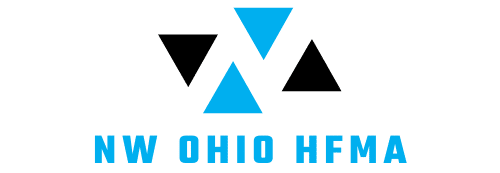How Are IoT Devices Being Integrated into Personal Hygiene Products?

In the ever-evolving digital space, the integration of the Internet of Things (IoT) into personal hygiene products is revolutionizing healthcare. The IoT, an expansive network of connected devices, is streamlining data management and improving patient care. In this article, we delve into how scholars and medical experts are integrating IoT devices into personal hygiene products to enhance health monitoring and patient care.
The Emergence of Smart Healthcare
It’s an exciting time in the sphere of healthcare. The integration of IoT devices into personal hygiene products is opening up new avenues for health monitoring and patient care. The system involves the internet, smart technology, and data management to create a comprehensive healthcare solution.
Cela peut vous intéresser : What Is the Future of IoT in Sports Training and Performance Analysis?
Patients, medical providers, and even scholars are reaping the benefits of this innovative technology. Its impact is far-reaching, from monitoring patients’ health status in real-time to enabling predictive and preventive care. It also aids in the effective management of chronic conditions and encourages patients to take an active role in their health management.
Data plays a crucial role in this integration. Real-time data captured from IoT devices can provide invaluable insights into a patient’s health status. These insights can be used by medical professionals to make informed decisions, leading to improved patient outcomes.
Cela peut vous intéresser : How Can IoT Sensors Aid in Structural Health Monitoring of Buildings?
The Role of IoT in Personal Hygiene Products
The integration of IoT devices into personal hygiene products signifies a new era in healthcare. This innovative approach extends the traditional use of these products, making them a vital part of health monitoring and management.
For instance, smart toothbrushes can monitor a user’s brushing habits, providing data on the brushing technique, frequency, and duration. This data can be used to make recommendations for improving oral hygiene. Similarly, smart diapers for infants and elderly patients can monitor and indicate health-related issues like hydration levels and urinary tract infections.
This integration is not just about health monitoring but also about improving patient care. By leveraging real-time data from these devices, medical professionals can provide personalized care to patients. This personalized approach can lead to improved patient satisfaction and outcomes.
The Impact of IoT Integration on Data Management
While the integration of IoT devices into personal hygiene products is transforming healthcare, it is also reshaping the landscape of data management. The sheer volume of data generated by these devices necessitates efficient and robust data management systems.
IoT devices generate a massive amount of data in real-time. This data, if managed properly, can be a goldmine of insights for medical professionals. They can leverage this data to gain a better understanding of their patients’ health, make informed decisions, and improve patient care.
However, managing this data is not without challenges. Ensuring data privacy and security is paramount, given the sensitive nature of health data. In addition, the data must be stored and processed in a way that it can be easily accessed and analyzed by medical professionals.
The Future of IoT in Healthcare
The integration of IoT devices into personal hygiene products is just the tip of the iceberg when it comes to the potential impact of IoT on healthcare. The possibilities are endless, with advancements in technology paving the way for more sophisticated and impactful integrations.
Future IoT innovations could result in devices that can detect diseases at an early stage or even predict a health issue before it occurs. For instance, a smart toothbrush could detect early signs of gum disease, or a smart toilet could identify markers of a potential health issue in human waste.
As the technology evolves, so too will the capabilities of these devices. This promises a more proactive approach to health care, where issues can be identified and addressed even before they manifest physically. Such a healthcare system could significantly improve patient outcomes and revolutionize the way we perceive healthcare.
The role of IoT in healthcare is rapidly evolving. From smart toothbrushes to smart diapers, the integration of IoT devices into personal hygiene products is not just a technological advancement, but a healthcare revolution. This integration is improving health monitoring and patient care, while also transforming the landscape of data management. As the technology continues to evolve, there is much anticipation for what the future holds for IoT in healthcare.
The Enhancement of Healthcare via IoT Technology
The integration of IoT devices into personal hygiene products is an emerging trend which is bound to enhance the healthcare sector in notable ways. This approach sees the fusion of real-time data, artificial intelligence, and a host of other innovative technologies. The goal of this integration is to revolutionize health care, and so far, the results look promising.
IoT based healthcare products are now capable of collecting, storing, and analyzing data relevant to a user’s health. For instance, smart toothbrushes can gather data pertaining to a user’s dental hygiene habits, providing comprehensive information on brushing technique, frequency, and duration. The collected data can then be analyzed, and if necessary, used to offer recommendations for improving oral hygiene.
Similarly, smart diapers have been introduced into the market, majorly benefiting infants and the elderly. Equipped with sensors, these diapers can monitor and indicate health-related issues such as urinary tract infections and hydration levels. The data they provide can be pivotal for healthcare professionals in diagnosing and treating these conditions.
Beyond regular patient monitoring, the integration of IoT devices into personal hygiene products also plays a significant role in managing chronic diseases. By capturing patient data in real-time, these devices allow for the prompt detection of health issues, enabling healthcare professionals to take timely action and provide appropriate treatments.
The Implications of IoT Integration on Data Management and Security
As IoT devices continue to be integrated into personal hygiene products, the volume of generated health data keeps increasing. This surge in data necessitates robust and efficient systems for data management. Given the sensitive nature of health data, it is crucial to ensure that these systems uphold data privacy and security, while also enabling easy access for healthcare professionals.
The integration of IoT into personal hygiene products is a double-edged sword when it comes to data management. On one hand, the vast amount of real-time data can be invaluable to healthcare professionals. On the other hand, managing this data presents its own unique challenges.
For instance, appropriate measures must be put in place to ensure that the data is not only securely stored but also processed in a way that upholds the privacy of the patients. Furthermore, the data management systems must be designed in a way that allows healthcare professionals to easily access the information they need in a timely manner.
In conclusion, the integration of IoT devices into personal hygiene products signifies a major leap forward in the healthcare sector. From improving patient care to revolutionizing data management, the potential benefits of this integration are immense. However, there are also challenges that need to be addressed, especially in regards to data security and privacy.
As we look to the future, the role of IoT in healthcare continues to evolve and expand. With advancements in technology, we can expect more sophisticated IoT devices that promise unprecedented improvements in health monitoring and patient care. Undoubtedly, this is an exciting time for both the healthcare sector and patients alike. With IoT at the forefront, a proactive and highly efficient healthcare system is not just a possibility, but an impending reality.
